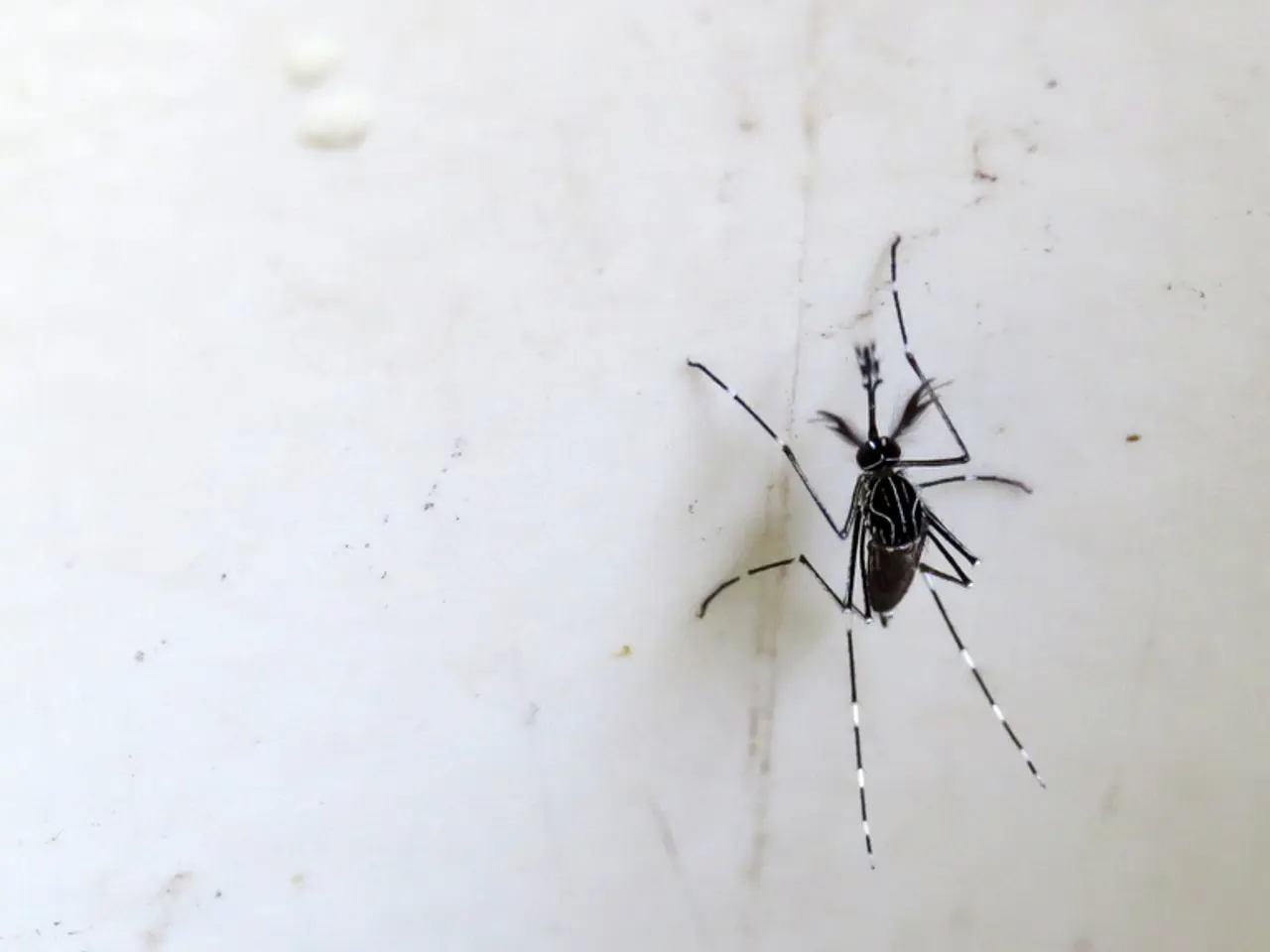Vacationing in Thailand Without a Medical Professional: What You Need to Know
Headline: Tourist Health Alert: Navigating Seasonal Diseases in Thailand
Thailand, a popular tourist destination, is experiencing a rise in common seasonal illnesses during its rainy season (May to October). The Thai Ministry of Health has issued a warning about these diseases, which primarily include dengue fever, chikungunya, travel-related diarrhea, respiratory infections including influenza and COVID-19, Zika virus, and pink ringworm [1][3][4][2].
Key Seasonal Diseases and Their Characteristics
| Disease | Cause/Vector | Symptoms | Seasonality | Risk Groups | |-------------------------|------------------------|----------------------------------------------|------------------------------------|--------------------| | Dengue Fever | Aedes mosquitoes | High fever, severe headache, rash, joint pain | Peaks during rainy season (May-Oct) | All travelers | | Chikungunya | Aedes mosquitoes | Fever, rash, severe joint pain | Rainy season | All travelers | | Travel-Related Diarrhea | Food/water contamination | Diarrhea, stomach cramps | Year-round but higher risk in rainy season | Travelers eating street food | | Respiratory Infections (including influenza, COVID-19) | Viruses (droplet transmission) | Fever, cough, sore throat, fatigue | Increase noted during rainy season | Children, elderly, comorbidities | | Zika Virus | Aedes mosquitoes | Mild fever, rash, joint pain, red eyes | Rainy season | Pregnant women (high risk for fetus) | | Pink Ringworm | Fungal infection (skin) | Large patch rash, smaller round rashes, general malaise | Rainy season | Children, young people, pregnant women (risk of miscarriage) |
Precautions for Tourists to Prevent These Diseases
- Mosquito Bite Prevention (critical for dengue, chikungunya, Zika):
- Use DEET-based insect repellents.
- Wear long sleeves and long pants, especially during daytime when Aedes mosquitoes are active.
- Stay in accommodations with air conditioning or mosquito screens.
- Eliminate mosquito breeding sites by removing standing water outdoors (flower pots, buckets, discarded tires)[1][4].
- Food and Water Hygiene (to avoid travel-related diarrhea):
- Eat at reputable, busy restaurants or street vendors with good hygiene practices.
- Drink only bottled or boiled water.
- Wash hands often with soap, or use hand sanitizer[1].
- Respiratory Disease Prevention:
- Get vaccinated against influenza and COVID-19 before travel.
- Wear masks in crowded or enclosed spaces during high risk periods.
- Practice good hand hygiene and avoid close contact with sick individuals[3].
- Skin Disease Vigilance (pink ringworm):
- Maintain personal hygiene and monitor any unusual skin changes.
- Avoid scratching or damaging the skin to reduce infection risk.
- Seek prompt dermatological consultation for suspicious rashes, especially during the rainy season[2].
- Special Precautions for Pregnant Women:
- Avoid areas with active Zika transmission due to risk of fetal abnormalities.
- Take extra care to prevent mosquito bites and consult healthcare providers for advice on travel[4][2].
By adhering to these precautionary measures, tourists can significantly reduce their risk of contracting these seasonal diseases while visiting Thailand[1][2][3][4]. It's essential to seek immediate medical attention if symptoms such as high fever, headache, and joint pain appear [1].
Melioidosis, while common in Thailand, is not specifically mentioned as a seasonal disease affecting visitors in the Thai Ministry of Health's warning. Additionally, there are no mass cases of illness among tourists from any specific country, including Russia, on Thai territory. However, some tourists have expressed concerns about the risk of dengue fever in Thailand.
- In addition to the discussed diseases, it's crucial to consider the importance of health and wellness, including mental health, during travel to Thailand.
- Travelers should be mindful of the impact of fitness and exercise on their overall well-being, ensuring they maintain a balanced routine during their visit.
- For pregnant women, in addition to the precautions mentioned, it's advisable to avoid conditions related to nutrition that may pose risks, such as consuming raw or undercooked food.
- To further combat seasonal diseases like dengue fever, despite frequent concerns from tourists, it's essential to also focus on nutrition, mental health, and fitness as part of a comprehensive approach to health and wellness.




